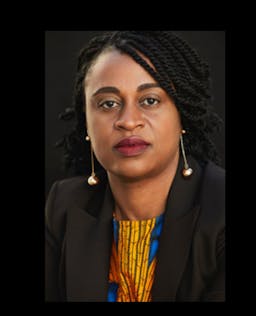The UN`s Concept Of Defamation Of Religion Vs Press And Religious Freedom In Cameroon
Jan 21, 2015
Story
Cameroon is one of those countries in Africa with an admirable level of freedom of worship. Individuals of different religious inclinations interact freely, enjoying a thriving atmosphere of religious tolerance. Churches and mosques constructed close to each other are typical in Cameroon’s large cities. The country is comprised of 40 percent Christians, 40 percent animists and 20 percent Muslims. Religion is an integral part of daily life, as Cameroonians attach a lot of importance to spirituality. There is no official state religion but Christianity and Islam are the two main religions given pride of place during state events. Since 1999, the Organization of Islamic Nations (57 nations), has been endorsing the idea that nations are obliged to implement laws against the defamation of religion. The text of the resolution castigates what it refers to as negative stereotyping of religions and religious figures. It also kicks against the use of print, electronic media and the Internet to criticize religious symbols and venerated people. On March 25, 2010, the United Nations Human Rights’ Council in Geneva passed a non- binding resolution targeting “Defamation of Religions,”’ with 20 votes in favour, 17 against and 8 abstentions. Cameroon is counted amongst the 8 countries that preferred not to have a say on the issue. Defamation of religion as a Human Rights concept has been subject to a lot of scrutiny and criticism over the years. These criticisms range from its definition to its applicability as an authentic human right.
In my opinion, and in the Cameroonian context, a law on defamation of religion would tamper with the admirable atmosphere of religious tolerance that currently reigns in Cameroon, and could usher in a legalized repression of minority religions.
Freedom of expression is a fundamental human right and an integral part of religious tolerance. Open and frank talks about religion could serve as a check of the excesses of religious institutions. A law would help to weaken the already skeletal form of press freedom in Cameroon. Christians, Muslims and animists should be able to voice their religious convictions without the interference of the state. Journalists should also be able to broadcast or publish facts about all religions, with no bias. The value of religious institutions as for a measure of morality in society would be better protected if incidents of moral decadence within the system are exposed and castigated rather than cajoled in the name of shunning religious criticism.
D.M. Murdurk, an independent scholar of comparative religion and mythology, in an article titled “Beware of Defamation of Religion” says “religion is not human, and as such, possesses no human rights that can be protected by the Human Rights Council. Defamation in its very definition involves a person and not an abstract concept like religion.”
The marginalization of Pentecostals by adherents of mainline churches and the Cameroonian society in general, would be a local example of defamation of religion. Catholicism and Protestantism are the major Christian religions in the country, Catholics and Protestants prefer to liaise with Muslims during ecumenical celebrations than with Pentecostals.
This form of Christianity, whose evangelistic activities were banned by the government of Cameroon in the 1970s, only to resurface in the 1980s, is currently making strides, especially in the English-speaking parts of Cameroon. A good number of churches have been planted on almost every street corner of the country’s major cities.Most of them come from neighboring Nigeria and operate without authorization from the government. The state constitution demands that all religious bodies be registered and granted authorization by the Ministry of Territorial Administration and Decentralization.
Women are often the prime victims when issues related to religious persecution become evident. In Cameroon, women are usually forced to accept the tradition of their husbands and are often highly victimized for accepting any other religion.
All this not withstanding, Cameroon can still be considered as a country with a certain degree of religious tolerance. A law against defamation of religion might instead provoke religious unrest in the country.
This article is part of a writing assignment for Voices of Our Future, which is providing rigorous web 2.0 and new media training for 30 emerging women leaders. We are speaking out for social change from some of the most unheard regions of the world.




